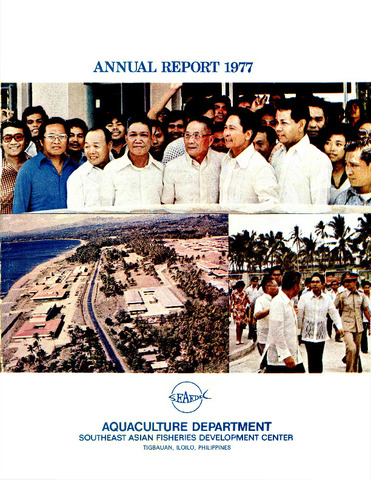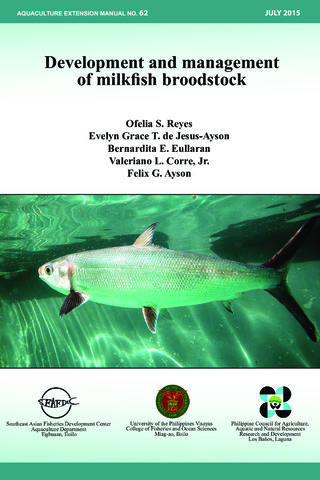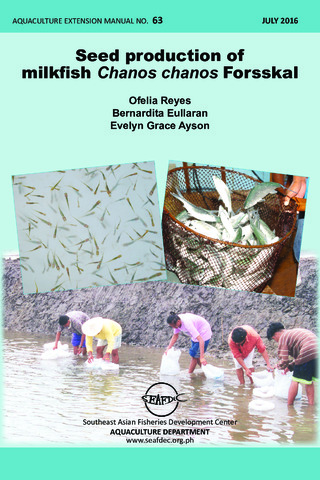| dc.contributor.author | Ferraris, Ronaldo P. | |
| dc.contributor.author | Tan, Josefa D. | |
| dc.contributor.author | de la Cruz, Margarita C. | |
| dc.date.accessioned | 2012-12-03T01:11:33Z | |
| dc.date.available | 2012-12-03T01:11:33Z | |
| dc.date.issued | 1987 | |
| dc.identifier.citation | Ferraris, R. P., Tan, J. D., & de La Cruz, M. C. (1987). Development of the digestive tract of milkfish, Chanos chanos (Forsskal): Histology and histochemistry. Aquaculture, 61(3-4), 241-257. | en |
| dc.identifier.issn | 0044-8486 | |
| dc.identifier.uri | http://hdl.handle.net/10862/1269 | |
| dc.description | SEAFDEC Aquaculture Department Contribution No. 192. | en |
| dc.description.abstract | The digestive tract of the newly hatched milkfish larva is a simple undifferentiated tube. Three days after hatching, differentiation of the esophagus begins with development of mucous-secreting cells. At this time, the intestine can be distinguished from the anterior portion of the digestive tract by its tall columnar cells with centrally located nuclei and brush border with cytoplasmic projections. After 14 days, mucosal folds develop in the esophagus. In 21-day-old larvae, the stomach differentiates into the cardiac and pyloric regions while goblet cells start to develop in the intestine. In fish undergoing metamorphosis (≥ 42 days old), the mucosal cells of the cardiac stomach develop into two distinct cell types: the columnar cells which make up the folds nearest the lumen, and the cuboidal cells which constitute the gastric glands. The cardiac stomach is the only region in the digestive tract where mucus secretion is not acidic. From 3-day-old larvae up to the older stages, alkaline phosphatase is localized only at the brush border of the intestinal epithelial cells. Aminopeptidase is also found only in the brush border of enterocytes, but only in 21-day and older milkfish. Intestinal esterases are present not only in the brush border but are also diffusely distributed in the cytoplasm of enterocytes of 3-day or older fish. Esterase is also found in both the columnar and gland cells of the cardiac stomach, but only in postmetamorphic (60-day or older) fish. These morphological and histochemical changes of the gut seem to parallel dietary and habitat shifts throughout development, which encompasses life stages spent in pelagic, coastal or inland waters. | en |
| dc.language.iso | en | en |
| dc.publisher | Elsevier | en |
| dc.subject | Chanos chanos | |
| dc.title | Development of the digestive tract of milkfish, Chanos chanos (Forsskal): Histology and histochemistry | en |
| dc.type | Article | en |
| dc.citation.volume | 61 | |
| dc.citation.issue | 3-4 | |
| dc.citation.spage | 241 | |
| dc.citation.epage | 257 | |
| dc.citation.journalTitle | Aquaculture | en |
| dc.subject.asfa | morphogenesis | en |
| dc.subject.asfa | histochemistry | en |
| dc.subject.asfa | histology | en |
| dc.identifier.doi | 10.1016/0044-8486(87)90153-0 | |
| dc.subject.scientificName | Chanos chanos | |



